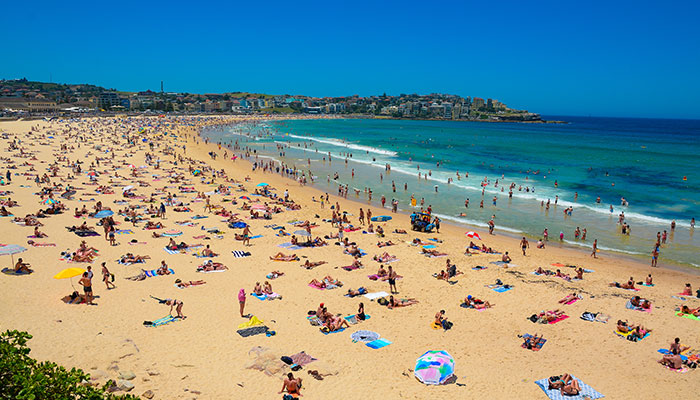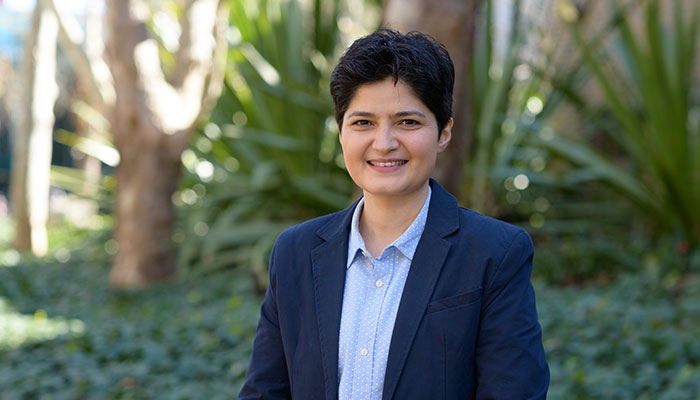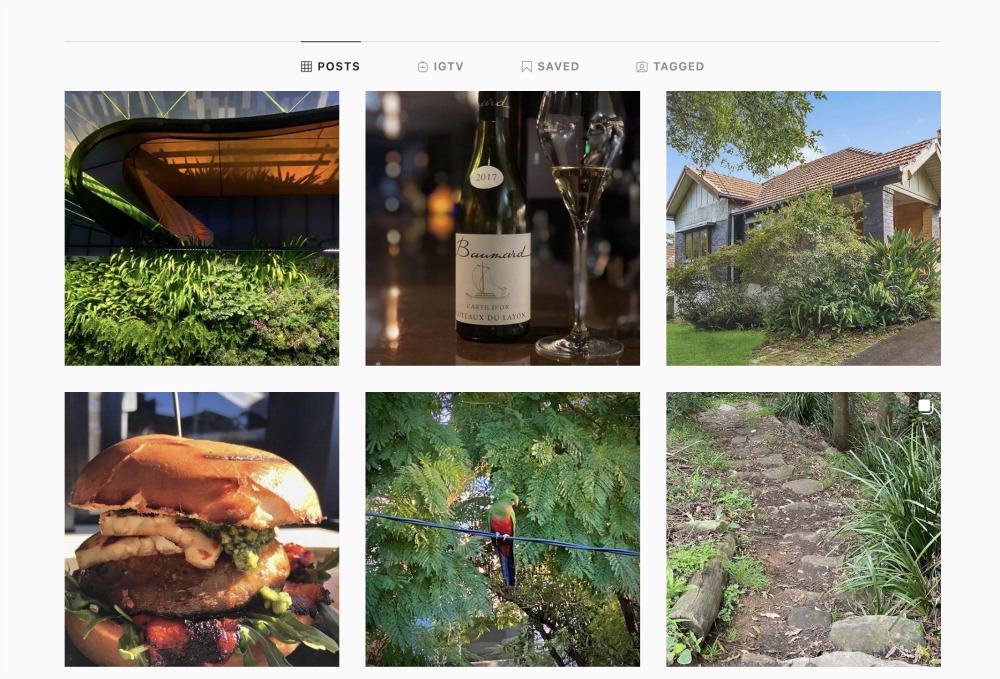Sun Safety Sensor
A chance conversation on the flight that brought her to study in Australia ultimately led Dr Noushin Nasiri to design a tiny wearable device that measures someone’s sun exposure and alerts them when they’ve exceeded the limit for their skin type.
Nasiri’s wearable ‘sun safety sensor’ prototype, the first of its kind, is about the size of her fingernail. The real-time sensor detects a user’s exact location, determining whether they are indoors or outdoors, in shade or sunlight, and how much ultraviolet radiation their skin has absorbed over 24 hours.
“Then, if you’ve gone over the safe limit, the device uses Bluetooth to communicate with an app on your smartphone to send you a text saying you’ve had enough exposure and you should get out of the sun or cover-up,” says Nasiri, Head of Macquarie University’s NanoTech Laboratory.
Already smartwatches report the UV index from your GPS location, but it’s not personalised. “Knowing your skin type, our sensor can calculate how much cumulative UV you can tolerate and then when you’re at risk; it will alert you immediately,” Nasiri says.
If you’ve gone over the safe limit, the device uses Bluetooth to communicate with an app on your smartphone to send you a text.
An advocate of preventative medicine, she says her novel, affordable device could alert millions of people in Australia and beyond to the dangers of overexposure to the sun, decreasing their skin cancer risk.
Each year, skin cancer accounts for the largest number of cancers detected in Australia. According to the Australian Bureau of Statistics, it killed 1429 people in 2018 – more than car accidents.
From PhD to a real-world contribution
Nasiri came to Australia from Iran in 2012 on a scholarship for a PhD. She planned to research a metal alloy to build lighter vehicles. But a casual conversation with the passenger beside her on the plane from Tehran changed her life’s research direction.
“The man next to me listened while I explained what I was studying, but then told me that Australia was no longer famous for manufacturing cars,” she says. “He suggested that if I was using taxpayers money, I should do some research that benefited all Australians.”

Deadly pleasure: skin cancer accounts for the largest number of cancers detected ever year among Australians, according to ABS data.
Once Nasiri better understood Australia’s outdoor lifestyle, and the high risk of skin cancer, she says she switched her research and found a new PhD supervisor with expertise in nanodevices.
“I had to learn a lot from scratch, but deep inside, I was very happy and motivated because I was doing something to give back to society,” she says.
He suggested that if I was using taxpayers money, I should do some research that benefited all Australians.
She succeeded in developing a novel device sensitive to UV light during her PhD. “But I didn’t have an electronic background to make the device wirelessly communicate with a phone,” she says. “So it just wasn’t very attractive to industry partners.”
Having been appointed to a lecturing role at Macquarie in September 2018, she drew on the University’s expertise and transformed the technology she had developed to make the device wearable.
Last year, Nasiri and Tasrif Noor, her Master’s student, created a prototype and published a ‘proof of concept’. Now they’re looking for an investor to incorporate the sensor into an existing smartwatch, Fitbit, sunglasses or clothing.

Inventor: Nasiri, pictured, hopes her nanodevice will help reduce the incidence of sun-triggered skin cancers in her adopted home of Australia.
Simultaneously, they’re making the device smaller (it was initially about the size of half a pack of cards), so it can be more comfortable to wear. Another benefit is that the device will be affordable, costing less than $20.
“We are so close to commercialising the device this year – and it’s very exciting,” Nasiri says.
Dr Noushin Nasiri is a Lecturer in the School of Engineering at Macquarie University. As well as her role at the Nanotech Laboratory, Nasiri is the NSW Smart Sensing Network Ambassador at Macquarie University. The network is a consortium of eight universities in NSW and ACT.
In the Cove Local News – Get in Every Wednesday!!
To make sure you don’t miss Lane Cove info sign up to our newsletter. It comes out every Wednesday at 7.30 pm and includes a wrap up of everything posted on our Facebook site in the previous week.
Did you know that In the Cove has an Instagram page? Yes, we do, and we feature pictures from our roving reporters and our ITC team that do not appear on our Facebook page. Follow us on @inthecove













